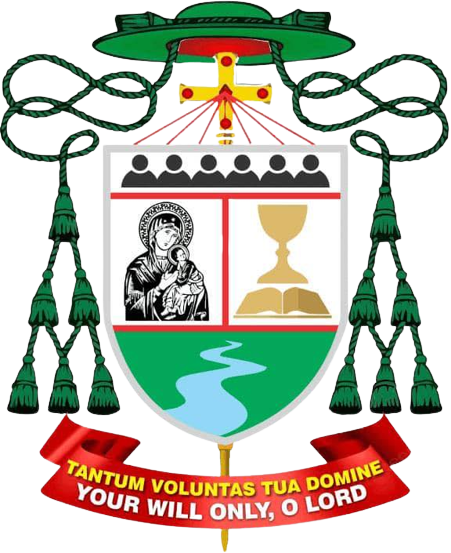IN 52 YEARS OF INDEPENDENCE
LUGARD’S NARRATIVE IDEA HAS MADE NO PROGRESS
By Fr Oviemuno Innocent OBI, OMV
Assist. Parish Priest, St Paul’s Parish, Benin-City.
 Nigerians have developed a pain in their neck from looking backwards. Few hearts indeed still retain enough steel to cast glances forward to see only the high hopes of yesterdays, which given circumstances of the Nigerian nation-state, were truly misplaced. Nigeria is a land where the best is questionable, indeed impossible; but where the worst never happens. A complete re-orientation of the methods of approach to the constitutional problem of Nigeria becomes to my way of thinking, of utmost importance and urgency.
Many Nigerians are of the view that the Nigerian entity was built on an injustice: slammed together by an increasingly belligerent lords, agitated by activism from one dependency, and seeking coalition with another to vitiate this. It is a dull history to claim that there was no unselfishness in Lugard’s 1914 exercise at amalgamation.
Today, our developing Nigeria is still beset by pre-historic fears, ethnic instincts and strong tribal affinities, which have their foundation in the identical injustices of creation and a dramatic reversal of fear, for instance, the first Fulani domination of the rest. In 52 years of independence, Lugard’s narrative idea has made no progress. What we can boast of is about many horsemen/herdsmen who have turned Nigeria into a pork container and have satiated themselves from it.
Probably, the indigenous fathers of the Nigeria state, North and South, who were alive were not all pleased at this turn of events, made certain mistakes some-where. In fact, I must say that, we have made the greatest mistake in our lives, by allowing the amalgamation of the northern and southern protectorates to form in 1914. This has inflicted a great wound upon the nation such that a healing process becomes difficult and to look for what to heal it, is a problem for us now. The colonial masters made one not to lay too much blame on President Goodluck Jonathan because of the policy of assimilation, which has influenced many Nigerians today; it is not easy to revamp what this attitude might have caused. It requires a great diplomatic effort on the part of their western friends and their educated sons and daughters in the upper ranks of the bureaucracy to convince the leaders that, in spite of what had happened, Nigeria is still a practicable proposition.
Ultimately, to make this united ‘New Nigeria’ possible, the northern leaders came to accept the creation of small states out of the existing regions and female-suffrage. Today, the political struggle is still informed by the old feudal principle developed in the North before the coming of the British colonialism, but thank God that democracy has gradually seeped into the government at all levels in the country.
Our idea of the New Nigeria was one in which there will be equal opportunity for all to live a full creative life and in which co-operation rather than competition will be the basis of socio-economic life. But with the independence Nigerian nationalism was fractured by the dynamics of political powers, the struggle for the so-called “national cake”. Of course, the British never did much to foster national unity in Nigeria, and from the amalgamation to the eve of independence, they discouraged any serious contact between North and South, having created a common parliament for the country only in 1946. Even so, whatever might have been the ‘sins’ of the British, what happens from independence onwards is clearly our ‘own business’. Until recently, many of our elite took our national unity for granted or merely paid ‘lip service’ to it as we take hold of available amenities for our groups.
Without the will to change Nigeria once and for all, people of our time would only achieve precious little things. Then, Nigeria would have forever lost the opportunity to resolve the overarching differences that have kept her on the precipice for far too long. And the abiding danger would be that in the fullness of time, the slightest tremor would send it tearing down the abyss.
Conclusively, to foster a greater understanding among our people, I believe we need more than the creation of states and occasional interstate visits by senior government officials. We need to exploit the legal and educational systems as the chief mechanisms of social change. We need to encourage more student exchanges and work camps at which our youths will be exposed to a national philosophy based on brotherhood and service to the nation. We need a higher level of socio-cultural stimulation from our mass media. We need to encourage inter-tribal marriages, multi-ethnic institutions, social research and community service. All these and more will go a long way in promoting mutual tolerance and respect without which we cannot succeed in building a united society of equals and collaborations in today’s world.
Peace to our Father-Land.
